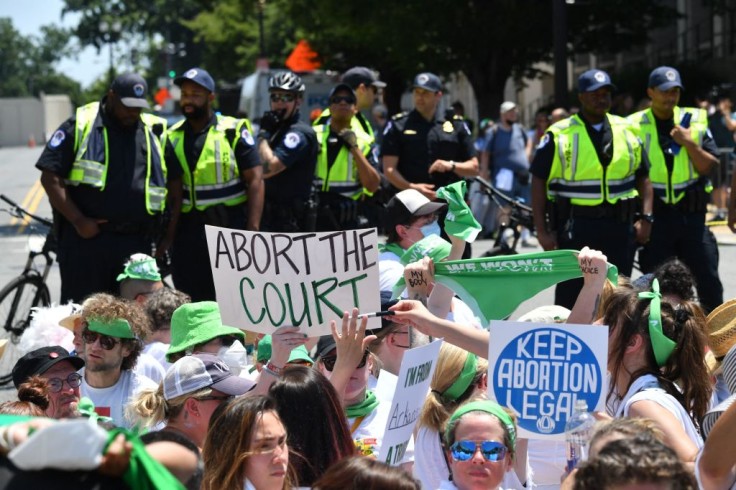
Data shows that American women in most trigger law states are less likely to have health insurance in the U.S. They are also more likely to be the ones below the poverty line. According to the U.S. Census Bureau data analysis by NBC News, nearly 1 of every 4 women who gave birth in 13 states with pending state-level abortion laws post-Roe v. Wade between 2015 and 2020 are below the poverty line.
That is compared to 1 in 5 women in states where abortion is deemed legal. Wyoming and Utah, which are trigger law states, have the lowest maternal poverty rates in the country.
But nine of the 13 trigger law states have rates above the national average of 21 percent, with Arkansas, Louisiana, Mississippi, and West Virginia accounting for four of the five highest maternal poverty levels in the United States. New Mexico, where abortion is legal, is at 33 percent.
Oklahoma and Tennessee have the highest share of uninsured women in the U.S.
According to federal guidelines, a family of four making less than $28,000 is considered under the poverty line. Other factors that make raising a kid more difficult, such as having access to health insurance, are also more pronounced in trigger law states. In most trigger law states, uninsured levels among American women exceed the national average.
About 11 percent of women ages 19 to 64 in trigger law states do not have health insurance, compared with 8 percent in states with legal abortion. Oklahoma and Tennessee, both trigger law states, have the most significant share of uninsured women at about 20 percent.
Data also showed that trigger law states saw a disproportionate share of uninsured people along certain racial lines. According to an analysis of Census Bureau data, Latinos and Black people are more likely to lack health insurance.
The rate for uninsured Latino people in trigger law states is about 33 percent compared with the 21 percent in legal abortion states. On average, 18 percent of Black people in trigger law states are uninsured, compared with 11 percent of Blacks in states with legal abortion.
Read Also : Heartbreak for Honduran Mom as She Lost Her Two Sons in the San Antonio Migrant Truck Tragedy
What are the abortion trigger law states?
Thirteen states in the country prepared trigger laws to ban abortions in the event that the Supreme Court rolled back federal abortion protections. These are Oklahoma, South Dakota, Tennessee, Texas, Utah, Missouri, Mississippi, North Dakota, Wyoming, Arkansas, Idaho, Kentucky, and Louisiana.
In the aftermath of last week's decision to overturn the landmark Roe v. Wade ruling that legalized abortion in the United States, the Supreme Court threw out lower court rulings that invalidated three abortion laws at the state level on Thursday, June 30, according to Reuters.
All three laws - from Arkansas, Indiana, and Arizona - were blocked by lower courts based on Roe v. Wade and the subsequent 1992 ruling that reaffirmed it. Planned Parenthood v. Casey was also overturned as part of the Supreme Court's June 24 ruling that upheld a Mississippi law banning abortion after 15 weeks.